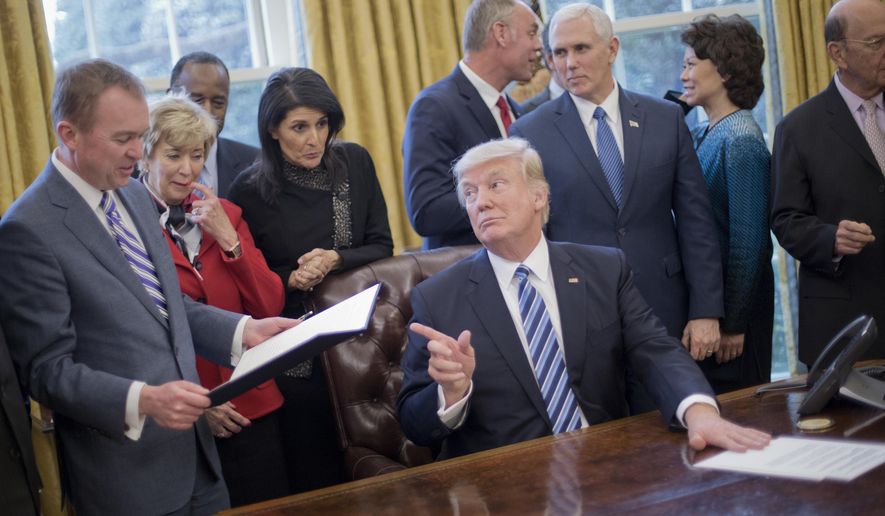The federal government will run a $5 trillion deficit three decades from now, the Congressional Budget Office predicted Thursday, saying nearly 30 percent of the country’s economy will be consumed by Washington’s spending.
And repairing the damage won’t come cheap: Middle-class families would have to shell out an average of $2,100 a year in higher taxes just to get the budget back to the shape it was in under President George W. Bush, the CBO said in its latest warning that the country’s finances have gone wildly off track.
The economy will continue to sputter, average less than 2 percent growth a year for the foreseeable future, putting downward pressure on the government’s revenue. But an aging population and soaring health care costs will put ever more demands on taxpayers to pay for the generous promises the government has made to senior citizens.
Deficits, already high by historic standards, will spike, piling up the federal debt held by the public. The debt could reach 150 percent of gross domestic product in 2047, poisoning the economy, the analysts said.
“Such high and rising debt would have serious budgetary and economic consequences,” the CBO said in its report.
The new report is the latest reminder of the grim state of federal finances.
But the report did little to break the gridlock on Capitol Hill, where Democrats said the answer is more taxes and Republicans said the problem is runaway spending.
The CBO laid out the choices in stark language: Keeping federal debt at its already elevated level of 77 percent of GDP would mean either a $1,300-a-year tax increase on the average middle-class family, or a cut of $1,700 per year in benefits paid to the average middle-class senior citizen.
Repairing finances back to where they were under Mr. Bush a decade ago would be even tougher. Middle-class families would see a $2,100 tax increase, or senior citizens would have to withstand a $2,800-per-year cut in their Social Security, Medicare and other benefits.
Enticing more workers into the labor force could help expand the economy, spreading the burden, but recent trends have gone the other way, with Americans fleeing the workforce.
And much of the pain is already built in, the CBO said, since debt is already high and interest rates are likely to go up. Payments to service the debt already accumulated under previous presidents will eat up an increasing portion of government spending.
By 2047, more than 20 percent of the federal budget will be dedicated to debt service payments.
The economy will top $60 trillion that year, measured by GDP, but the deficit will be 8.6 percent of GDP — or more than $5 trillion. That’s three times the previous record deficit of $1.4 trillion, set in 2009.
“We must deal with the key drivers of future deficits: the rising costs of health care programs, Social Security, and interest on the debt,” said Robert Bixby, executive director of the Concord Coalition, a leading budget watchdog.
He said that means politicians need to talk about those big issues, not just the annual fights over defense, education, environment and other basic spending.
This year’s report is only slightly worse than last year’s outlook, and about the same as the grim picture the CBO and other analysts have painted for years.
But Congress and the Obama administration have done little to tackle the big issues, instead struggling just to get the year-to-year spending bills done.
President Obama had ruled out changes to slow the growth of Social Security and actually expanded spending under Medicaid, two of the biggest entitlements. Meanwhile Republicans had ruled out raising taxes to bolster the programs’ funding.
President Trump has said he would try to sweat out savings from wasteful spending, but said during the campaign he wouldn’t trim benefits from Social Security or Medicare, closing down the chance to work on two of the biggest budget problems.
In his first budget outline earlier this month, Mr. Trump tackled discretionary spending, proposing increases in defense and homeland security but cutting elsewhere to leave the deficit unchanged.
Mr. Trump’s full budget will come several weeks from now, giving him an opportunity to lay out bigger moves on entitlements.
• Stephen Dinan can be reached at sdinan@washingtontimes.com.




Please read our comment policy before commenting.